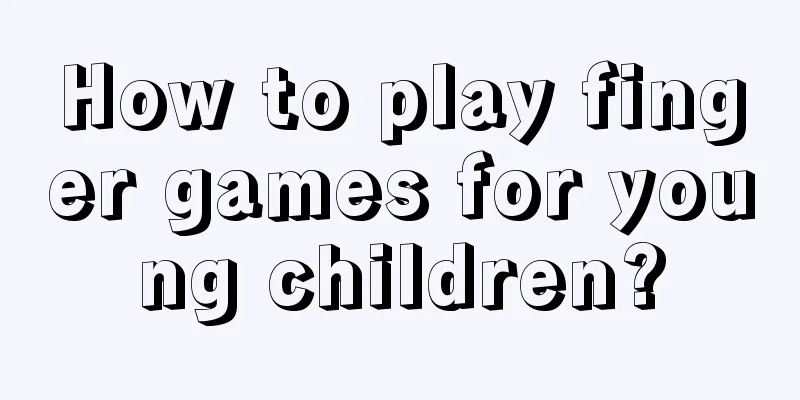Why does my child sweat so much?

|
Nowadays, many children are very naughty. They run and jump all day long, especially in such hot weather. They sweat after just moving a few times. However, there are also some children who don’t sweat much no matter how much they play. This makes parents whose children sweat as soon as they move anxious. They think that their children’s sweating is due to some physical illness. In fact, this is not the case at all. Our experts have made a detailed explanation for children’s sweating. Excessive sweating is a common symptom in children. It is necessary to correctly distinguish whether it is physiological excessive sweating or caused by disease to avoid delaying treatment: Time when excessive sweating occurs: Children with weak bodies are overactive during the day and often sweat excessively after falling asleep at night, but the sweat gradually subsides after deep sleep. This type of excessive sweating is more common in children with rickets and malnutrition. Children with active tuberculosis and other chronic wasting diseases sweat excessively not only in the first half of the night, but also in the second half of the night before dawn, hence the name night sweats. Excessive sweating on an empty stomach should pay attention to hypoglycemia. Excessive sweating while eating is mostly physiological or constitutional. Associated symptoms of excessive sweating: Excessive sweating accompanied by symptoms such as irritability, restlessness, restless sleep, crying at night, and bone changes such as occipital baldness, skull softening, square forehead, pigeon chest, and funnel chest are mostly rickets; those who have excessive sweating accompanied by low fever, loss of appetite, weight loss and other manifestations should suspect tuberculosis or other wasting diseases; those who have excessive sweating accompanied by symptoms such as migratory pain in bones and joints and increased heart rate should pay attention to rheumatic fever. Excessive sweating and age: Infants and young children should pay attention to active rickets; older children should pay special attention to tuberculosis and rheumatism. Location of excessive sweating: Excessive sweating caused by infectious diseases, rheumatism, etc. is systemic; excessive sweating of the hands and feet is often constitutional and has a family tendency; excessive sweating of the head is seen in rickets and normal children. Appendix: Rickets is a common nutritional disease in children, which is seen in children under 3 years old. The initial symptoms can appear at about 3 months. In addition to excessive sweating, there are also symptoms such as irritability, restlessness, restless sleep, and crying at night. Due to excessive sweating, children often shake their heads and rub the pillow, resulting in baldness on the pillow. The bone changes in this stage are very mild, but if they are not discovered in time or treated improperly, they can develop into the extreme stage. In addition to the above symptoms, the main bone changes are bone changes and delayed motor function development. The main bone changes include: softening of the skull, square forehead, beaded ribs, costophrenic grooves, pigeon chest, excavatum, "o"-shaped or "x"-shaped legs, late teething, and late closure of the anterior fontanelle. 【Cause】: Common diseases that cause pathological hyperhidrosis in children include nutritional diseases, such as rickets and malnutrition; infectious diseases, such as tuberculosis and sepsis; connective tissue diseases, such as active rheumatic fever; many children tend to sweat a lot when they are just recovering from an illness, which may be related to autonomic dysfunction. The above is a series of explanations and analyses made by our experts on children's sweating. The so-called children sweat more, a big reason is that children are in the developmental period, all parts of the body are still in the growth period, so the sweat secretion is more than the average person, but experts do not rule out the possibility of suffering from certain diseases. Therefore, parents still have to carefully observe their children's condition, and go to the hospital for treatment immediately if there is anything wrong. |
<<: What to do if your child loves to sweat
Recommend
How to take care of babies with allergies
It is said that mothers are the greatest people i...
Which department should children go to for circumcision?
Many parents of boys have found that their childr...
Tips for children to kick off the quilt when sleeping
Taking care of a baby is the most tiring thing. A...
Why does the child cry in the middle of the night?
We know that children can only grow up healthily ...
What should I do if my baby’s ears are flooded?
When our body produces a lot of sweat, if it is n...
What is the appropriate water temperature for a child's bath?
Family members still need to know more common sen...
Color of stool in newborn baby with jaundice
The birth of a newborn brings joy to the family, ...
How to deal with low fever in children
If your baby often has a fever when he is young, ...
Why do children's knees make cracking sounds? Causes of cracking knees
Children's knee joints may make parents worry...
Should children's decayed teeth be extracted?
Whether children should have their cavities extra...
What's wrong with the child's blue eyes?
Parents may sometimes notice that their children&...
Nursing measures for children with fever
Fever results from an imbalance in body temperatu...
What should I do if my three-year-old baby has vomiting and diarrhea?
Children are the hope of us parents, and every pa...
The child has frequent urination recently
Frequent urination not only occurs in adults, but...
Why are the baby's palms and soles hot and sweaty?
Recently, many parents have discussed that their ...









